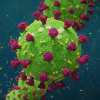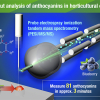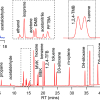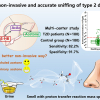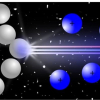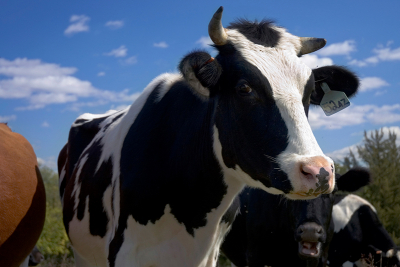
A research project to tackle bovine mastitis and reduce the use of broad-spectrum antibiotics on dairy farms—and so potentially help in the fight against antimicrobial resistance (AMR)—is underway at the Institute for Global Food Security (IGFS), Queen’s University Belfast, UK, in partnership with AgriSearch and AFBI. The new approach will involve the use of mass spectrometry to develop a rapid diagnosis of mastitis, directly from a suspected milk sample. This will initially use laboratory-based equipment but could potentially be translated to an on-site test to further increase test turnaround times. The project will also explore the potential for the wider application of rapid evaporative ionisation mass spectrometry (REIMS) in areas such as milk-quality analysis and the monitoring of lameness in herds.
Bovine mastitis is a painful inflammatory condition of the udder, caused by the cow’s immune response to a microbial infection. It is a significant challenge to the dairy farmer and to the industry due to the effect on cow health and welfare, the complexities of controlling the condition and the need to withhold milk from human consumption during treatment and recovery.
Farmers carry out a visual inspection of the milk as part of the milking process; changes, such as the formation of clots in the milk, can be indicative of clinical mastitis in addition to the direct observation of heat or swelling of the udder. “Somatic cell counting” of a milk sample can be useful in screening for pre-clinical mastitis, particularly where farmers regularly undertake milk recording of their herd. Microbial culture and sensitivity are then carried out to determine the causal pathogen and the best type of antibiotic treatment, but these tests can take several days and rely on an uncontaminated sample being collected in the milking parlour.
Broad-spectrum antibiotic treatment is usually started immediately, before microbiology results have been returned by the laboratory, to minimise the pain and suffering of the cow, but such therapeutic use of broad-spectrum antibiotics has the potential to contribute to AMR—an increasing problem for both animal and human health.
The REIMS approach, however, could eliminate the need for time-consuming milk-sample preparation and, therefore, be more user-friendly for farmers with near-instantaneous results. Additionally, the rapid identification of pathogens would allow for more timely, targeted “narrow-spectrum” treatments, potentially reducing the use of broad-spectrum antibiotics. In fact, if rapid diagnostics also facilitated earlier treatment, the use of antibiotics might be eliminated altogether, further helping society’s battle against AMR.
As part of a PhD project at IGFS and the School of Biological Sciences, milk samples will be collected from dairy farms which are part of the AgriSearch network and, through AFBI, from cows with suspected and confirmed mastitis, alongside healthy control samples. The same project will also look at lameness in dairy cattle. Current diagnosis of lameness involves visual observation which unfortunately means cows are often undiagnosed until the problem has become fairly advanced. A longitudinal study to assess a naturally occurring molecule or gene will be conducted on a dairy herd using REIMS so as to identify potential biomarkers that could flag up a proclivity towards lameness.





